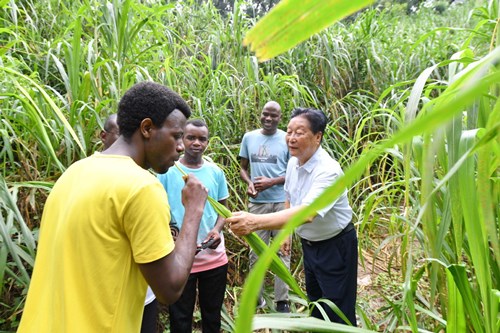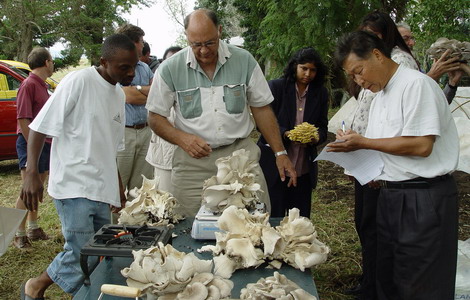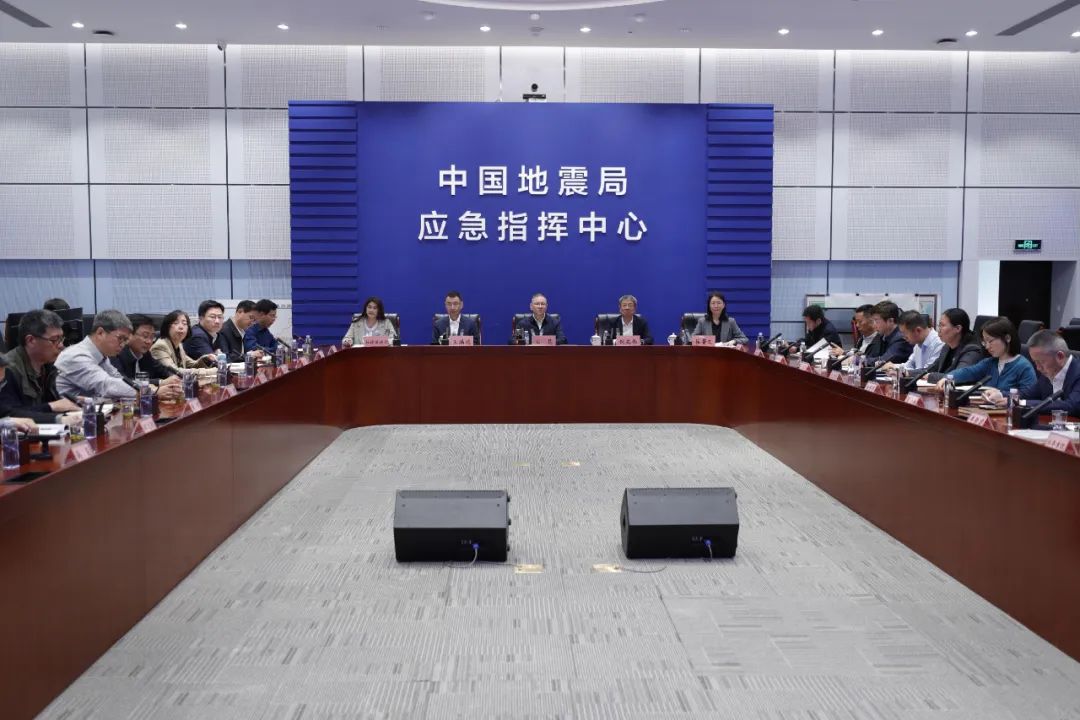'Prosperity grass' epitomizes BRI cooperation: Xi

Rwandan student Obed Niyimbabazi (1st L) tastes tender Juncao grass in Fuzhou, Southeast China's Fujian province, Aug 12, 2021. [Photo/Xinhua]
At a recently concluded meeting on the Belt and Road Initiative, President Xi Jinping shared the story of the "prosperity grass", a way to grow edible fungi China introduced to many other developing nations to improve livelihoods of local farmers, to illustrate the people-centered philosophy of the BRI.
In 2000, Xi, then the governor of Fujian province, received Peti Lafanama, the visiting governor of the Eastern Highlands Province in Papua New Guinea. Xi introduced Lafanama to Juncao technique - a method which uses chopped grass as a substrate for growing edible and medicinal mushrooms and as forage for livestock.
The Juncao technique was invented by Lin Zhanxi, a professor from Fujian. Lin's breeding method allows the fungi to grow on grass instead of felled trees, which provides a solution to the mushroom industry's threat to forests.
In 2001, Xi personally pushed for the launch of the first China-aided Juncao demonstration base in Papua New Guinea, marking the start of international cooperation on the method.
Today, more than 700 rural households in the Eastern Highlands Province are breeding mushrooms with the Juncao technique. The herb used in the process is fondly referred to as the "China grass" and "prosperity grass" by locals.
A former defense minister of Papua New Guinea even named his daughter Juncao.
"After I became the vice-president of the country, I kept promoting the Juncao technique during my visits to countries in the South Pacific region, Africa and South America. Now it has taken root in more than 100 nations, creating hundreds of thousands jobs for locals," Xi said.
This method has benefited 106 countries by addressing poverty, soil erosion and desertification. It has been promoted in 18 languages, and over 10,000 people have been trained both at home and abroad.

Lin Zhanxi (right), a Chinese researcher and inventor of a new type of mushroom-growing technology, harvests oyster mushrooms with locals at a demonstration center for the technology in KwaZulu-Natal Province, South Africa. [Photo / Provided to China Daily]
In 2017, the China-UN Peace and Development Trust Fund launched the Juncao Technology Project at the UN Headquarters in New York.
"Livelihood projects are important ways to boost the sense of gain of people in countries involved in the Belt and Road Initiative as they can yield immediate benefits," Xi said at the recent symposium.
The Belt and Road Initiative, proposed by Xi in 2013, refers to the Silk Road Economic Belt and the 21st Century Maritime Silk Road, aimed at building a trade and infrastructure network connecting Asia with Europe, Africa and beyond.
China has so far signed documents on jointly building the BRI with 140 countries and 32 international organizations.

Follow us on WeChat
京ICP备18041594号-1
京公网安备 11010202005508号

Follow us on WeChat



